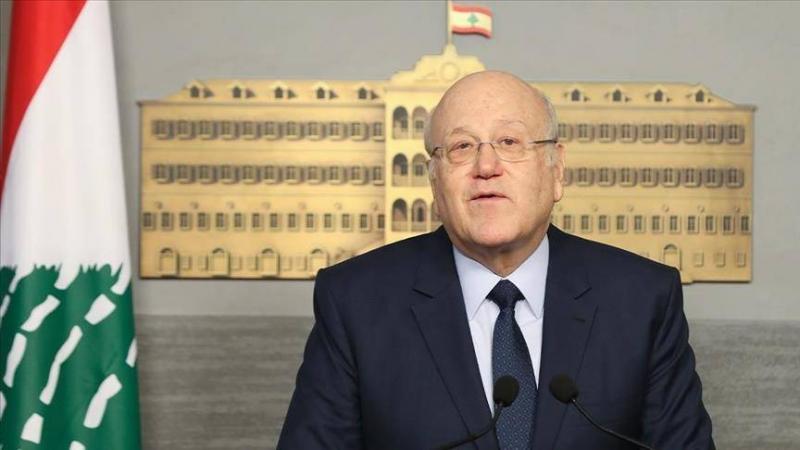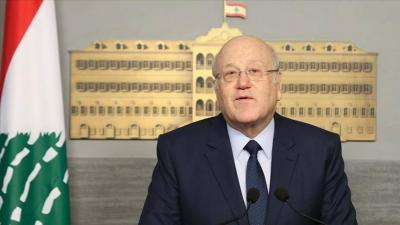Prime Minister Najib Mikati has been monitoring the situation in southern Lebanon through a series of international, Arab, and local communications. He also received calls from several heads of states and governments in this context. During these communications, the Prime Minister stressed that "the government's priority is to maintain security and stability in southern Lebanon, ensure continued calm along the blue line, adhere to Resolution 1701, halt ongoing Israeli violations of Lebanese sovereignty by air and sea, and withdraw from Lebanese territory that remains occupied."
The Prime Minister stated, "The communications I undertook confirmed the commitment of friendly and brotherly countries to keeping Lebanon safe from the repercussions of the explosive situation in the Palestinian territories and protecting it." Mikati reiterated that "fortifying Lebanon against turbulent developments requires hastening the election of a new president and halting the existing political tensions. The threat facing Lebanon does not affect a specific group or political faction; rather, it will, God forbid, have serious implications for all Lebanese and the general situation in Lebanon."
He continued, "In these difficult circumstances facing the region, it is no longer acceptable for internal disputes and divisions to continue over issues that have been overtaken by urgent events and potential repercussions. Provocative statements must cease, and all wills should unite during a phase that is, without exaggeration, among the most critical stages Lebanon and the region have ever faced, particularly in terms of unpredictability regarding forecasts, choices, and possibilities." Regarding the Palestinian issue, the Prime Minister said, "What is happening in the Palestinian territories is an inevitable consequence of the Israeli enemy's practices against the Palestinian people and their legitimate demands. The solution to this ongoing bloodshed begins with the international community assuming its responsibilities to pressure Israel to return to the path of peace based on its known references—particularly the Arab Peace Initiative issued at the Beirut Summit in 2002; anything else would be a continuing cycle of violence that will benefit no one."
### Government Activities
Prime Minister Mikati met with Foreign Affairs and Emigrants Minister Abdallah Bou Habib, who announced after the meeting: "I informed the President about the Arab League meeting that will be held in Cairo regarding the situations in Gaza and Palestine. We also discussed the issue of displaced Syrians and my upcoming visit to Syria this month, where I will also meet with the Syrian Foreign Minister at the Arab League meeting in Cairo." In response to a question, he said: "We do not want Lebanon to enter the ongoing war; we are working towards that, and the Prime Minister is making numerous contacts in this regard. Hopefully, we will see good outcomes, as all international parties are also urging us not to enter the war; that is Lebanon's stance."
### Diplomatic Meetings
Mikati received the Qatari Ambassador to Lebanon, Saud bin Abdul Rahman Al Thani, who said after the meeting: "I invited President Mikati to attend the 'Doha Forum' scheduled for December 10 and 11."
He also met with the Ambassador of Bangladesh in Lebanon, Major General Javed Tanveer Khan, to discuss bilateral relations and issues of mutual interest. The Prime Minister welcomed the Bulgarian Ambassador to Lebanon, Lassin Tomov, to discuss the bilateral relations between the two countries.
Additionally, Mikati met with the UNDP Resident Representative in Lebanon, Melanie Haunstein, to discuss the projects being implemented by the UNDP in Lebanon.
Finally, the Prime Minister received a delegation from the Court of Accounts led by Judge Mohammed Badran, who presented a report on the advisory opinion of the court regarding the Casino du Liban issue. He also welcomed the President of the Arab Cultural Club, Salwa El Sanioura Bassairi, along with a club delegation.




